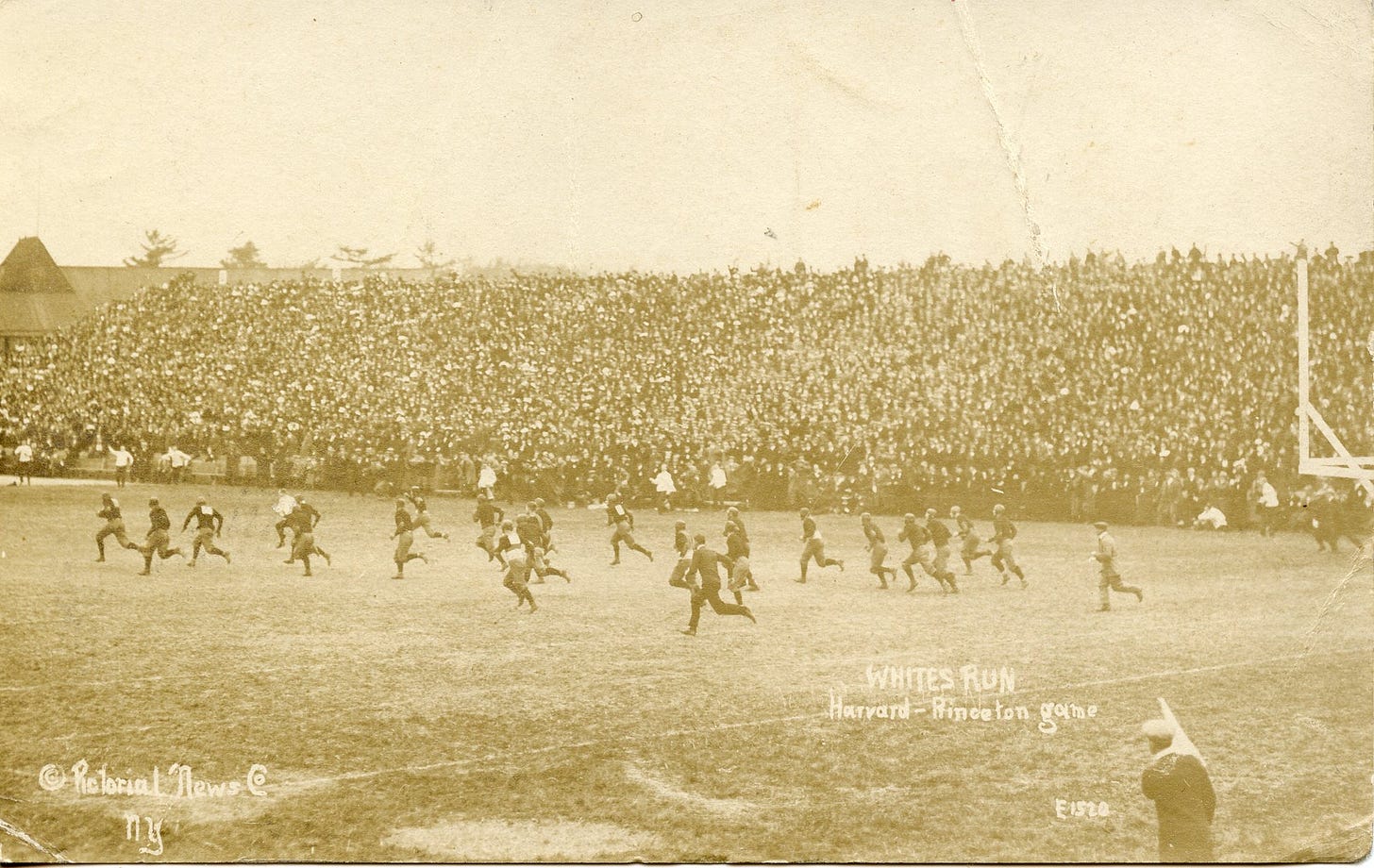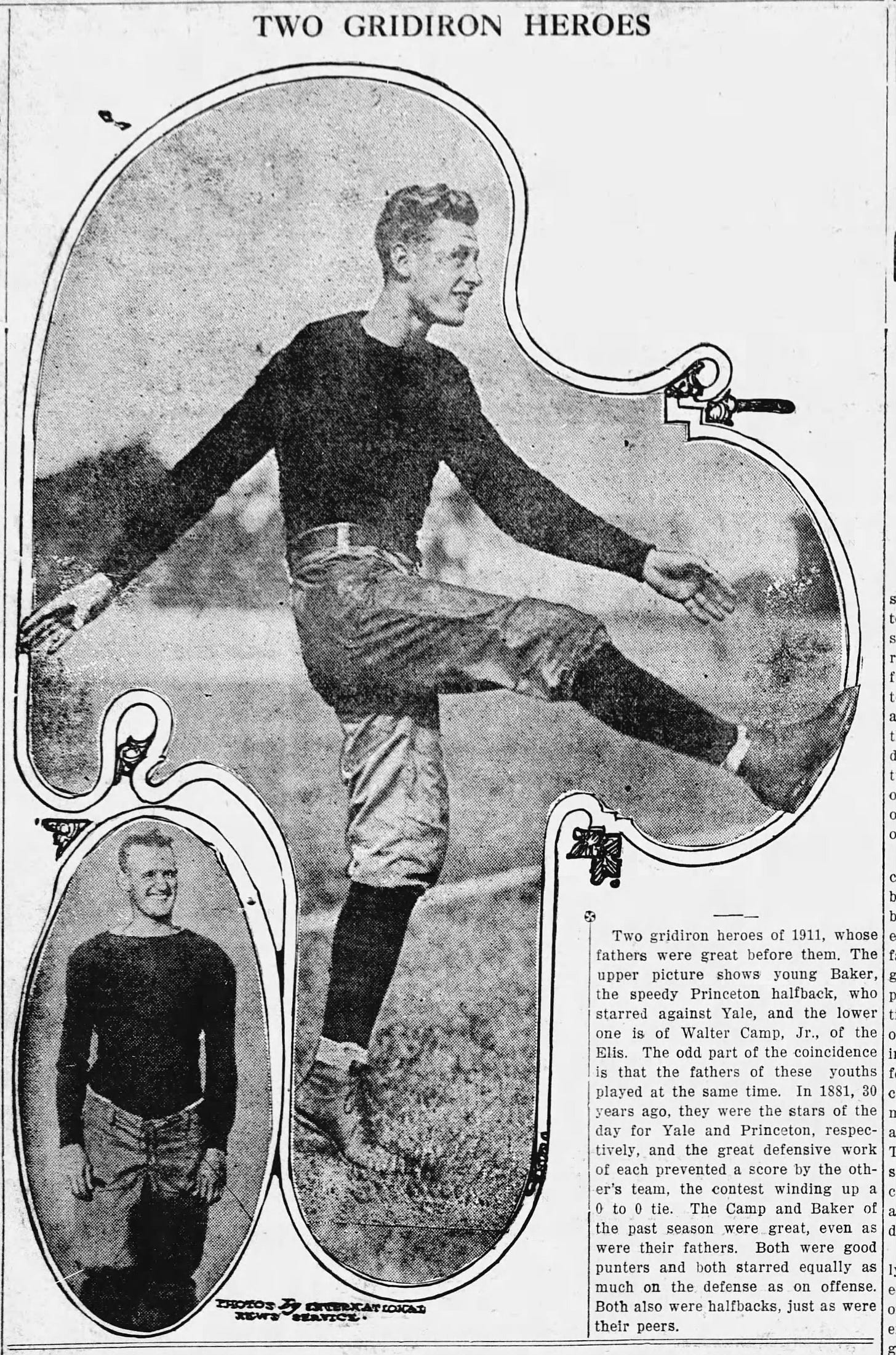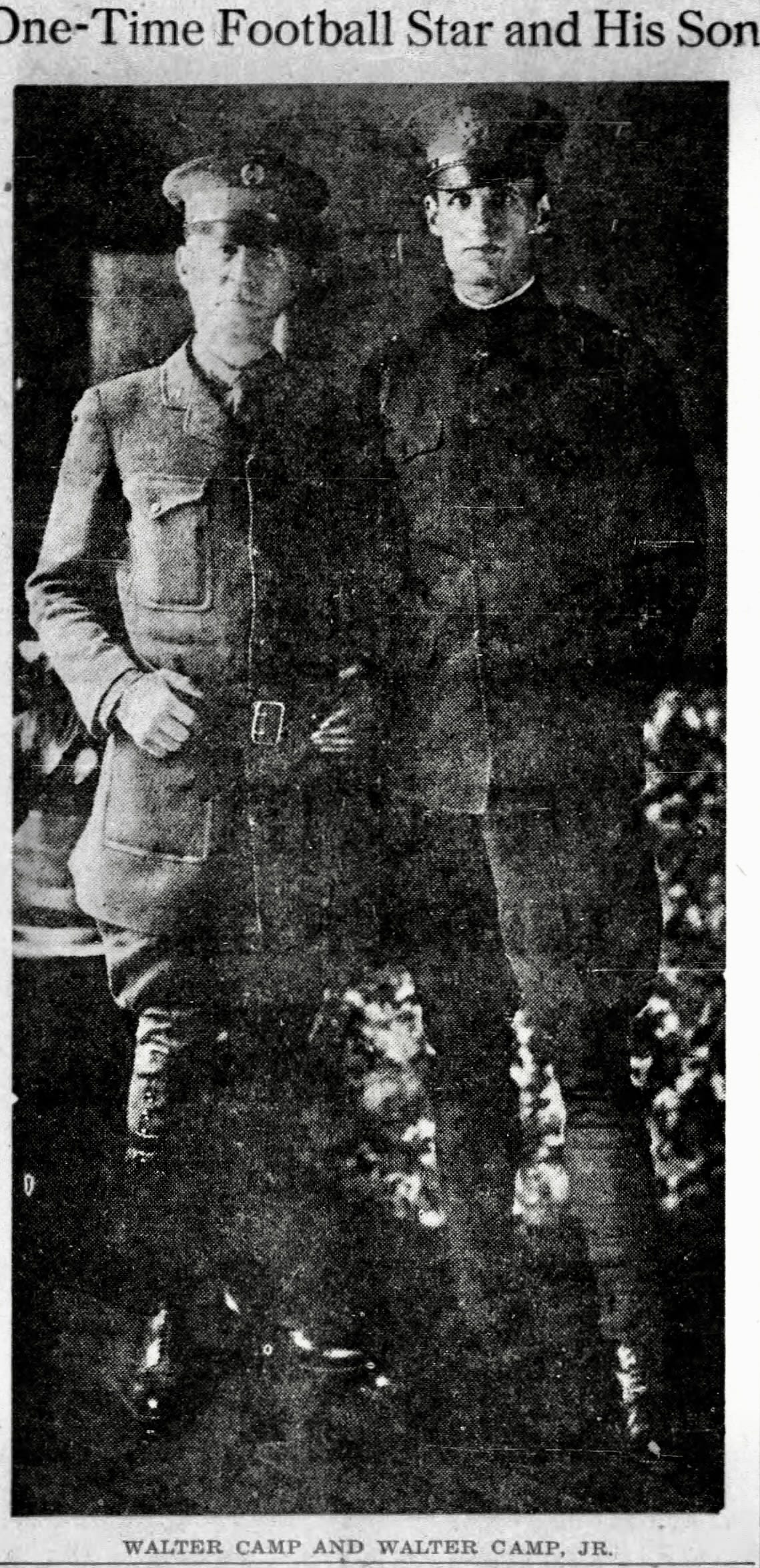Today's Tidbit... When Dad is the Father of Football
Growing up in the shadow of a rich and famous father can be difficult, so I've made damn sure my kids don’t have to deal with that. Still, imagine the expectations placed on a kid whose Dad was known as the Father of American Football five years before the lad was born. That was the case for Walter Camp, Jr.
Walter Camp (Senior) ran the New Haven Clock company and did lots of Yale and general football stuff as Junior grew up, so he was well acquainted with the game and Yale football before becoming a bulldog himself.
He played football at the Westminster School (CT) and started as a sophomore in 1905. Meanwhile, his father helped make football safe for humanity that winter, only to see his son break his collarbone early in the 1906 season. Junior was younger than his classmates, so he took a gap year before entering Yale in 1909 and joining the freshmen football team as a reported 198-pounder.
He immediately established himself as an effective punter and kicker, threw a 50-yard touchdown pass in an early-season freshman game, and generally showed promise on the football field—enough promise that he could not avoid comparisons with his father.
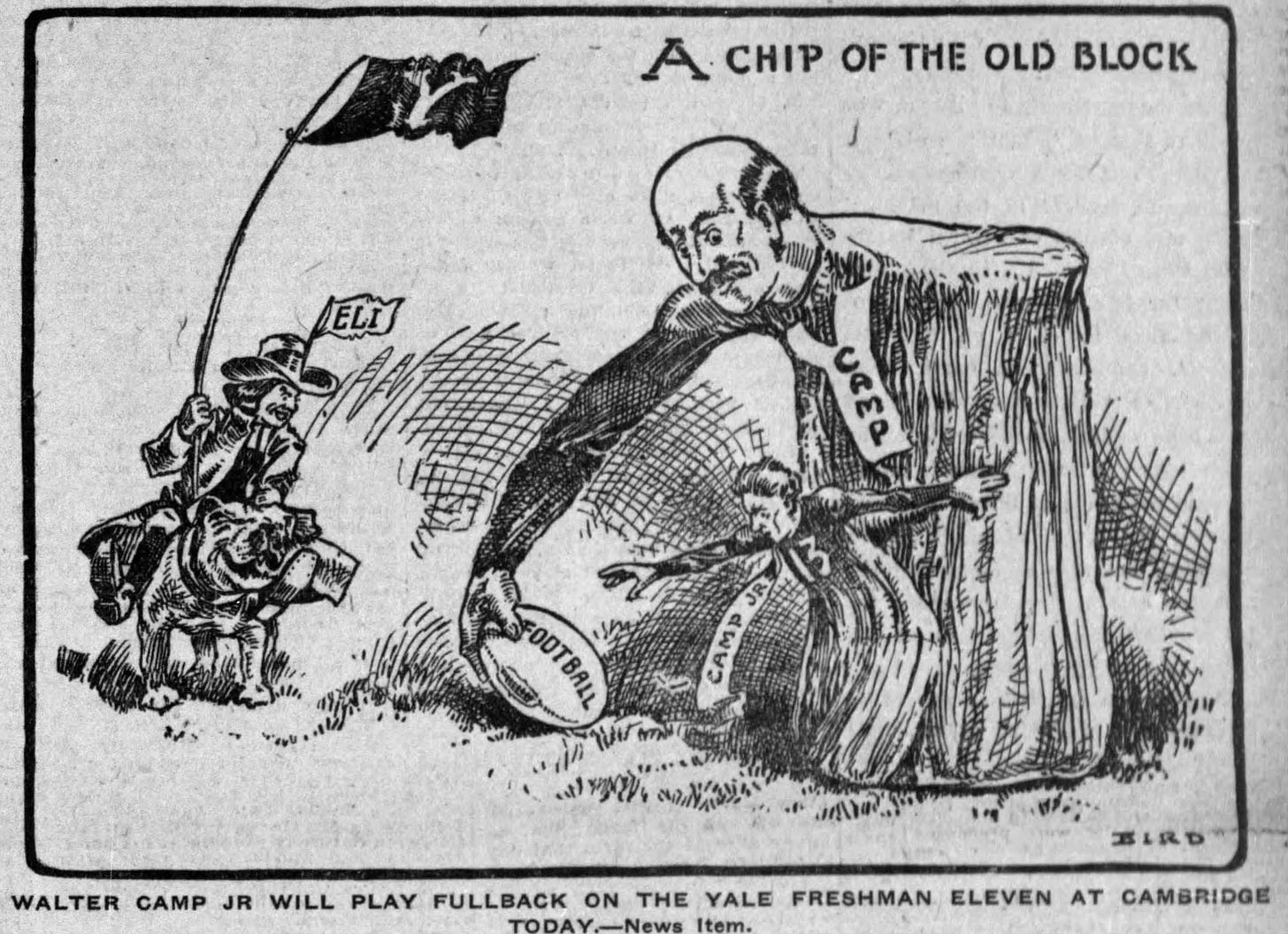
During the 1910 season, the sophomore split time between halfback and fullback until he injured his knee during a late September game with Colgate, which led to his hospitalization.
His junior season began much the same way. Camp was in and out of the lineup but came on strong as the season progressed. He starred in Yale's victory over Brown and was a leading ground gainer in their season-ending games with Princeton and Harvard.
Devoted readers may recall an earlier story about Princeton's Sammy White becoming an All-American primarily based on his performance in two games, the latter being a rain-soaked victory over Yale. Camp played the entire game at left halfback for Yale, frequently punting to keep the Elis in a game they lost on White's scoop and score a touchdown.
His football star was burning brightest as the season ended, leading to more father-son comparisons.
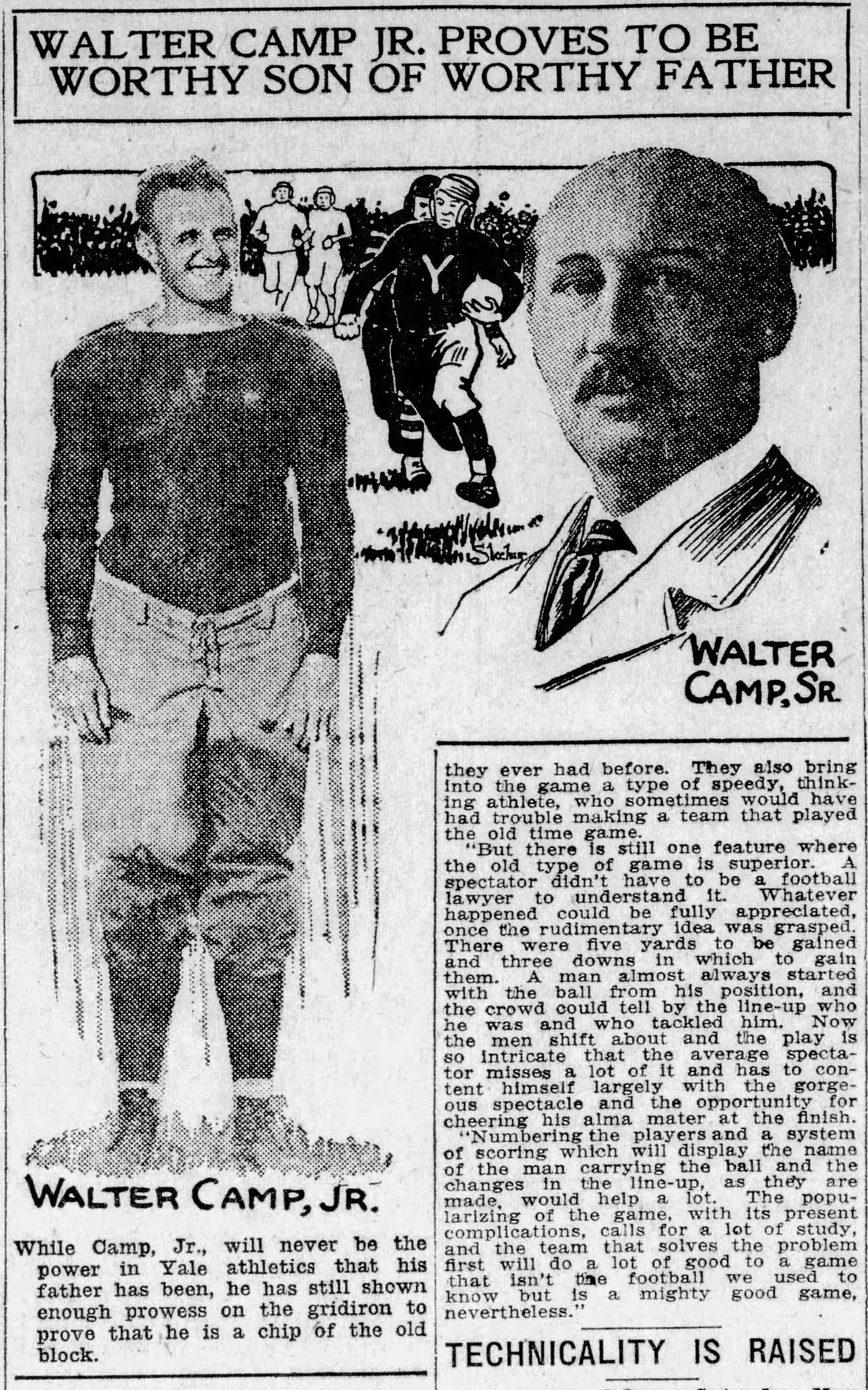
Even when Junior finally drew comparisons to a contemporary, like Princeton's Hobey Baker, the story focused on Junior and Senior being comparable to Hobey and his father, who played at Princeton at the time Senior played at Yale.
I wish I could tell you that Junior lit the college football world on fire during his senior season, but that was not to be. By the summer of his senior season, Junior began suffering from neuritis, sometimes reported as nervousness, so it is difficult to know whether he suffered from inflamed nerves, a mental condition, or something else the term meant back then.
Either way, Junior was late reporting to school and the football team but joined the squad by early October, hoping he could fulfill the promise he showed at the end of the 1911 season. Unfortunately, after practicing for a week, he left the team and never played again.
Junior graduated from Yale in 1914 and served as an athletic training officer in France during WWI.
Senior died in 1925, while Junior became a Hollywood producer, marrying several times. His only apparent foray into football came in 1936 when he funded the Captain's Cup, previously sponsored by Knute Rockne's widow. The prominence of the Captain's Cup was soon overtaken by an award named for John Heisman, but Junior appeared to enjoy his involvement with the Cup, saying:
It was my father and not I, who made the name of our family prominent in football, but I am happy to accept the sponsorship to the Captain's Cup because I know it would please him and because it is a dignified tribute to his memory.
'Captain's Cup For Bobby Grayson,' Morning Call (Paterson, NJ), February 21, 1936.
Walter Camp, Jr. passed away in December 1940 following a long illness.
Football Archaeology is reader-supported. Click here to buy one of my books or otherwise support the site.


